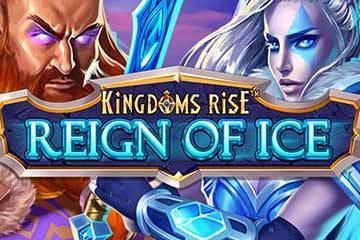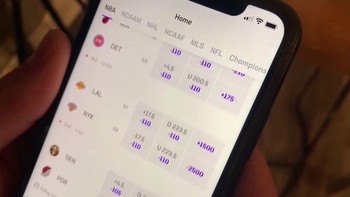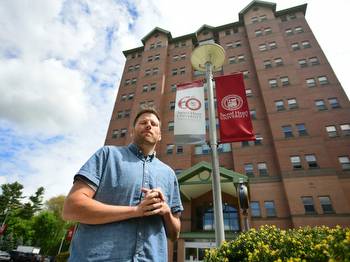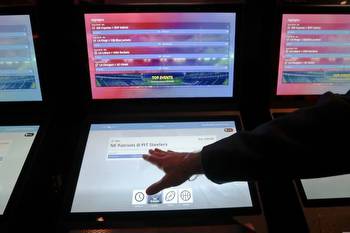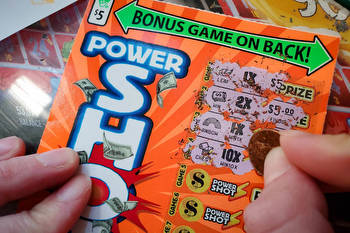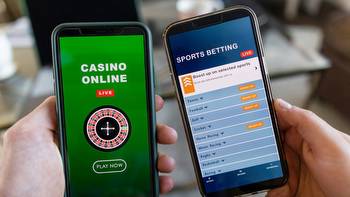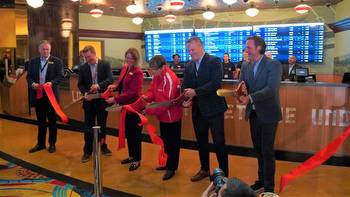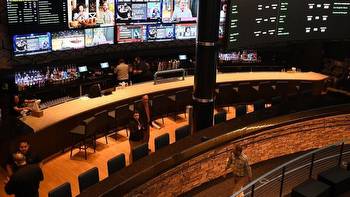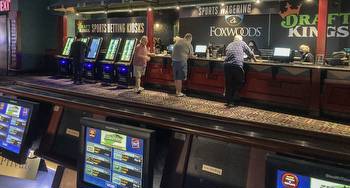Calls to CT’s problem gambling hotline up 203% since launch of online gambling

Calls to Connecticut’s problem-gambling hotline have more than tripled over the last six months after the state launched a series of sportsbooks and online gambling platforms, a deluge that advocates say has caught them off guard and strained resources.
According to the Connecticut Council on Problem Gambling, which operates the hotline, calls and chats are up 203 percent since Oct. 12 — when the state began a “soft launch” of online sports and casino betting platforms — compared to the previous six months.
“I kind of was blindsided by that because normally it takes a little while for problem gamblers to hit rock bottom and to think that they have a problem,” said Diana Goode, the council’s executive director.
In order to help field the growing number of calls to the hotline, Goode said the council hired two additional workers in February and March, bringing the total number of staff to five. Still, she said workers were feeling strained.
“We don’t have the resources to keep up with this, especially nights and weekends,” Goode said. “Everybody’s getting burned out.”
Adding to the crush of callers, Goode said, is the number of “nuisance” calls from people seeking help for issues other than a gambling addiction, such as those complaining about being unable to log into their accounts.
Those nuisance calls, Goode said, appear to be driven by casinos and online gambling platforms using an abbreviated version of the notice they are required to provide about the gambling hotline in commercials and marketing materials. The shorter message, she said, leaves ambiguity for some about whether the hotline is a resource for problems not related to addiction.
“They want every second of their time to be spent on trying to get people to gamble more,” Goode said of the online platforms. “So that’s why even saving three or four seconds, it’s a big deal to them, but it’s really hurting us.”
Excluding nuisance calls, the number of people seeking help with addiction is up 126 percent over the last six months, according to statistics provided by the council. A spokesperson for the council declined to provide Hearst Connecticut Media Group with the raw data about the number of calls the hotline received.
When asked about the increased number of calls to the hotline, representatives of Foxwoods and the casino’s online betting partner, DraftKings, pointed to their financial support for the Council on Problem Gambling, as well as internal controls on their platforms that allow gamblers to set spending and wager limits.
“We believe that ultimately, the most effective programs stop problem gambling behaviors before they start. To that end, we are developing a comprehensive plan that covers education, prevention and treatment,” said Anika Howard, the president of Mashantucket Pequot Interactive.
Representatives of Mohegan Sun and its online sportsbook, FanDuel, did not respond to requests for comment this week.
A third online betting operator partnered with the Connecticut Lottery, Rush Street Interactive, said in a statement that its platforms were the first in the U.S. to be accredited by the Toronto-based Responsible Gaming Council, and Goode had also publicly praised the Rush Street’s sportsbook, PlaySugarHouse, for the lack of nuisance calls from its customers.
“We believe this spike in calls is customary after a market launches as customers are learning the new platforms offered across the jurisdiction, and they are generally receiving more information about how to access problem gambling resource,” the company said in a statement.
Connecticut entered the arena of online and sports gambling in October following a multi-year effort by lawmakers and the state’s federally recognized tribes — the Mashantucket Pequots and Mohegans — to expand gambling beyond the two casinos they operate in the southeastern corner of the state, in addition to the lottery.
The expansion essentially allowed anyone over the age of 21 to place bets anywhere in the state with a smartphone or computer. When the law was enacted, mobile sports betting was already allowed in Rhode Island, New Jersey and Pennsylvania, according to the National Conference of State Legislatures.
Since the expansion, the state has collected an additional $17.5 million in revenues from online gaming. Profits for the casinos and sportsbooks from online betting, meanwhile, have topped $105 million.
The state had collected an additional $356,404 at retail sportsbooks around the state run by the Connecticut Lottery.
Paul Tarbox, a spokesperson for the Council of Problem Gambling, said the organization’s $800,000 budget did see a recent increase in funding from casinos, which it used to hire the additional staff members. Still, he said, it was not enough to keep up with the blitz of advertising from the casinos and sportsbooks that have filled television screens, billboards, mobile apps and radio airwaves.
“We had hoped that we would have received additional funding to promote responsible play and our Helpline but couldn’t afford to fund any of the marketing plan with the minimal casino funding increases that we did receive,” Tarbox said in an email.
Health experts have long warned that the ease of online gambling would lead to increases in gambling addictions and the number of people seeking help. In the same month last year that Gov. Ned Lamont and other officials celebrated the opening of sportsbooks and online casinos with much fanfare, former state Rep. Michael DiMassa, D-West Haven, was arrested and accused of stealing money from local COVID-19 relief funds to help fuel gambling sprees at Mohegan Sun.
Goode said callers to the hotline have skewed younger and are more frequently men since sports betting was legalized in Connecticut.
“They think they know everything and they’re really running into trouble,” Goode said. “Again, with the speed of how fast they can gamble and how often they can gamble, they get into trouble very quickly.”
The state provided an off-ramp for people struggling to control problem gambling by establishing a voluntary self-exclusion list that people can sign up for to be barred from online gambling platforms for periods of one year, five years or life.
Since the self-exclusion list was launched on Sept. 24, 739 people have signed up, according to the state Department of Consumer Protection.
Lawmakers have also sought to gain a better understanding of the impacts of legalized gambling in Connecticut, filing legislation that would require DCP to complete a report on the types of gambling done in Connecticut by Feb. 1, 2023 and every 10 years thereafter.
The bill received a favorable vote in March from the Committee on Public Safety and Security, which then referred the measure to the Appropriations Committee for further consideration.







